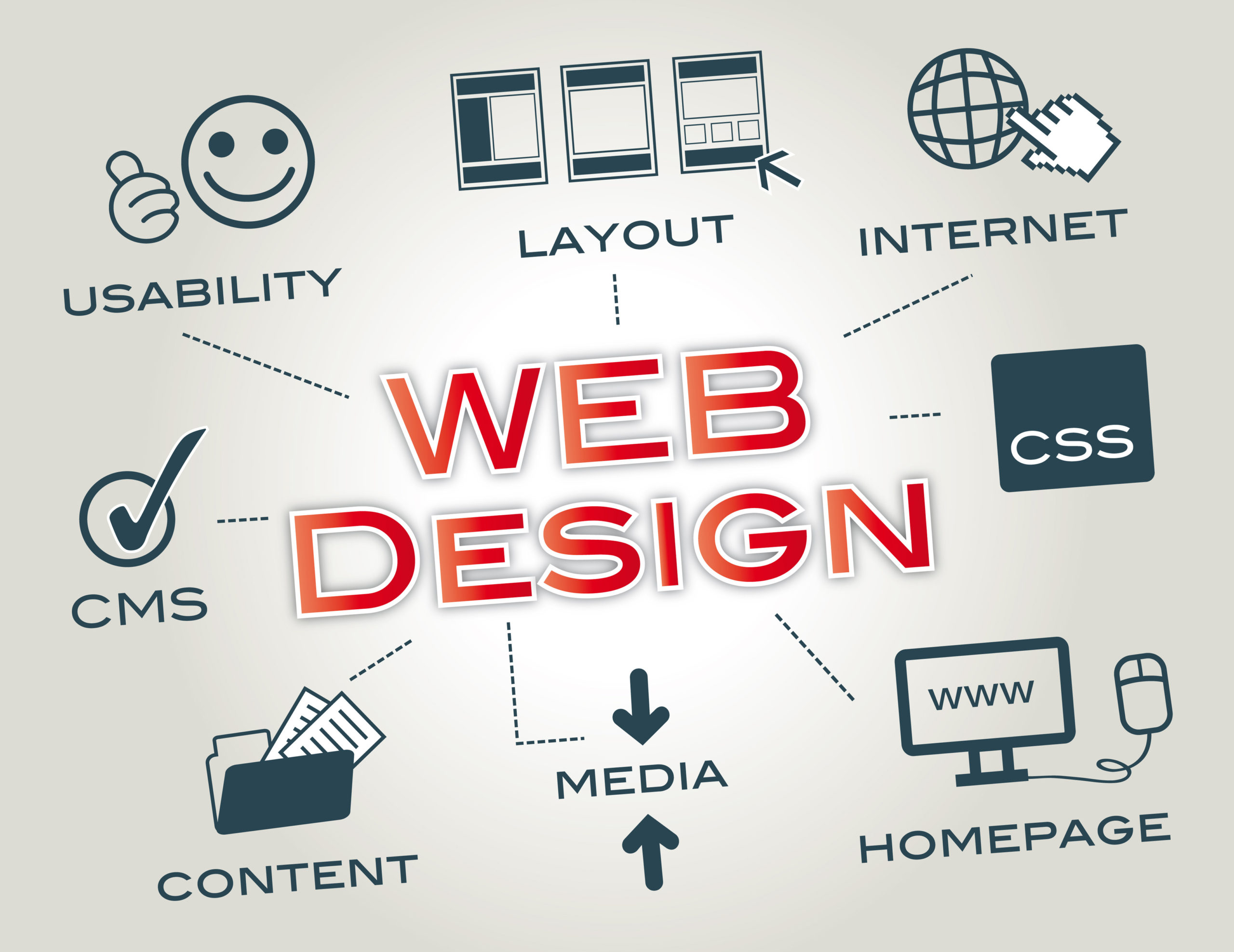Crucial Tips for Effective Website Design That Astounds Individuals
To achieve a compelling internet layout, an understanding of numerous essential elements is essential. It's not simply about visual appeals; it's also regarding functionality and how it influences user interaction. User-friendly navigating, selection of color design, typography, mobile responsiveness, and aesthetic hierarchy all play considerable duties. Each of these elements contribute to a style that not only mesmerizes the customer but likewise encourages prolonged communication. The complying with discussion will certainly light up these vital elements of website design.
Recognizing the Relevance of User-Friendly Navigating
Although frequently ignored, user-friendly navigating plays an essential function in effective web design. It develops the backbone of user experience, identifying how efficiently individuals can access the details they need. Navigating is greater than just a device; it's a guide that links customers to a site's various areas and features.

Furthermore, it must deal with the requirements of all users, regardless of their technological prowess. Hence, developers must take into consideration aspects such as lots times, responsiveness, and accessibility in their navigating style.
While appearances are necessary in website design, the functionality needs to never be jeopardized. A visually attractive site with poor navigating is like a gorgeous puzzle-- attractive, yet aggravating and eventually inadequate.
The Art of Selecting the Right Color Pattern
Diving into the art of selecting the best color pattern discloses an additional essential aspect of effective website design (Web Design In Guildford). A well-selected shade combination not only establishes the aesthetic tone of an internet site however additionally connects its brand identification, influences customers' feelings, and guides their interactions
Comprehending color psychology is vital in this procedure. Blue instills trust and calmness, while red ignites enjoyment and necessity. Furthermore, contrasting shades can be leveraged to emphasize crucial elements and guide users' emphasis.
The selected colors ought to line up with the brand's picture and target audience's choices. Designers need to make sure that the color contrast is high sufficient for individuals with aesthetic impairments to differentiate in between different aspects.
The Function of Typography in Web Layout

Different typefaces evoke various emotions and organizations, making the selection of typefaces tactical. Serif font styles, as an example, can convey custom and class, while sans-serif font styles suggest modernity and minimalism. The cautious selection and combination of these typefaces can create a distinct individuality for a web site, enhancing its brand identity.

Importance of Mobile Responsiveness in Website Design
Comparable to the duty typography plays in vogue an efficient website design, mobile responsiveness has actually become another significant element of this realm. With the rise in mobile phone use, users currently access the net a lot more on mobile phones than computer. As this link a result, a site that isn't mobile-friendly can dissuade potential clients, influencing company adversely.
Mobile responsiveness suggests that an internet site's layout and functionalities readjust seamlessly to the display's size and alignment on which it is seen. This flexibility enhances the user's experience by supplying easy navigating and readability, no matter the gadget. It removes the requirement browse around here for zooming or straight scrolling on smaller displays, therefore lowering customer aggravation.
Additionally, search engines prioritize mobile-responsive websites in their rankings, a factor essential for search engine optimization. Integrating mobile responsiveness in web style is not just about aesthetic appeals or customer experience; it's additionally concerning presence, making it a vital aspect in the web design round.
Using Aesthetic Hierarchy to Guide Individual Involvement
Aesthetic hierarchy in web style is an effective tool that can guide user engagement efficiently. It employs a plan of components in a fashion that suggests relevance, affecting the order in which our eyes perceive what they see. This technique is not concerning improvement, but concerning routing the user's attention to one of the most essential parts of your site.
Strategic usage of size, contrast, color, and placement can develop a course for the visitor's eye to adhere to. Larger, bolder, or brighter components will normally draw attention first, establishing a focal factor. The positioning of aspects on a page additionally plays a significant function, with products positioned higher or towards the center typically seen first.
In a nutshell, a well-implemented aesthetic power structure can make the distinction in between a site that retains visitors and one that repels them. It ensures that crucial messages are conveyed effectively, creating a more satisfying customer experience.
Final thought
Inevitably, an effective website design must prioritize user experience. By concentrating on straightforward navigation and mobile responsiveness, a web site can draw in and keep even more users. The careful option of color pattern and typography contributes to a site's visual allure and readability. Additionally, the application of aesthetic hierarchy directs users' interest to crucial aspects. These essential tips not only enhance individual fulfillment, yet also urge site web longer website sees, bring about a much more effective internet visibility.
Important Tips for Effective Web Layout That Mesmerizes Users
Each of these factors contribute to a layout that not just captivates the individual yet also encourages prolonged interaction. It develops the foundation of user experience, figuring out just how efficiently users can access the information they require.Visual power structure in internet style is an effective tool that can lead user involvement successfully.Eventually, an efficient internet style need to focus on user experience.